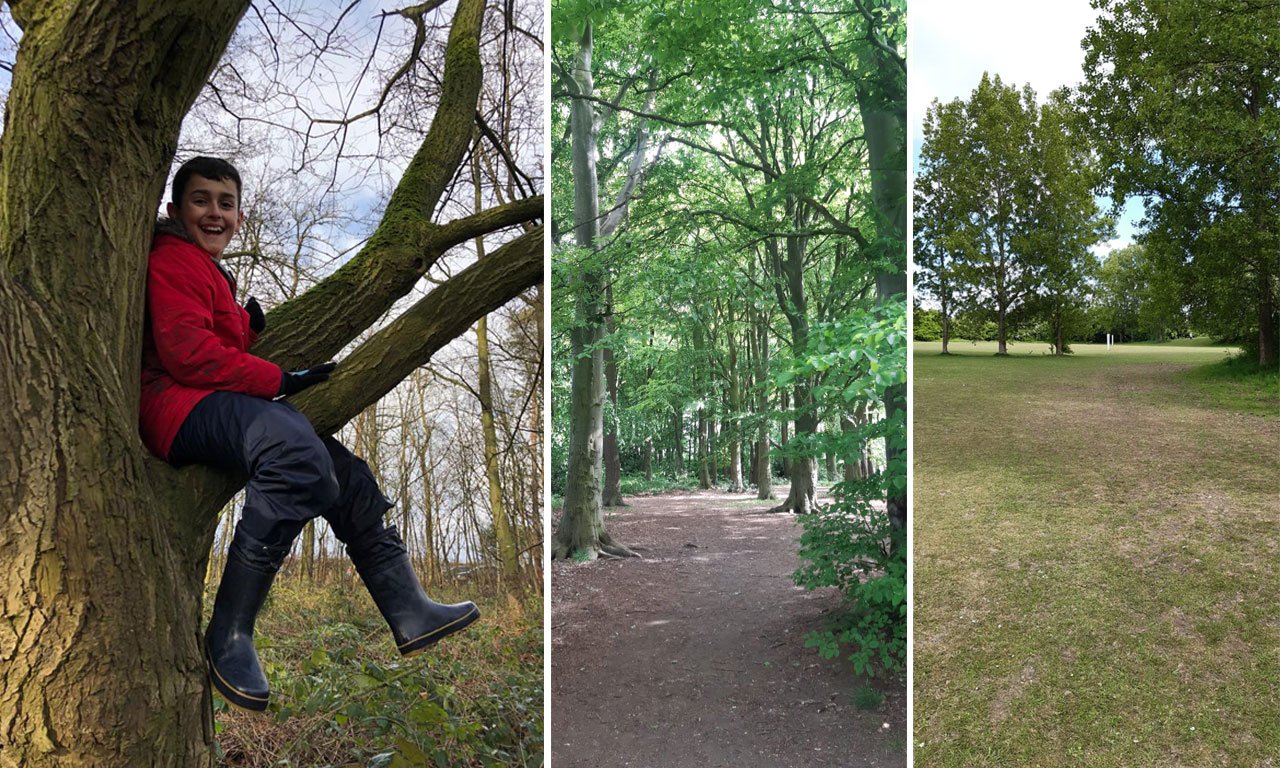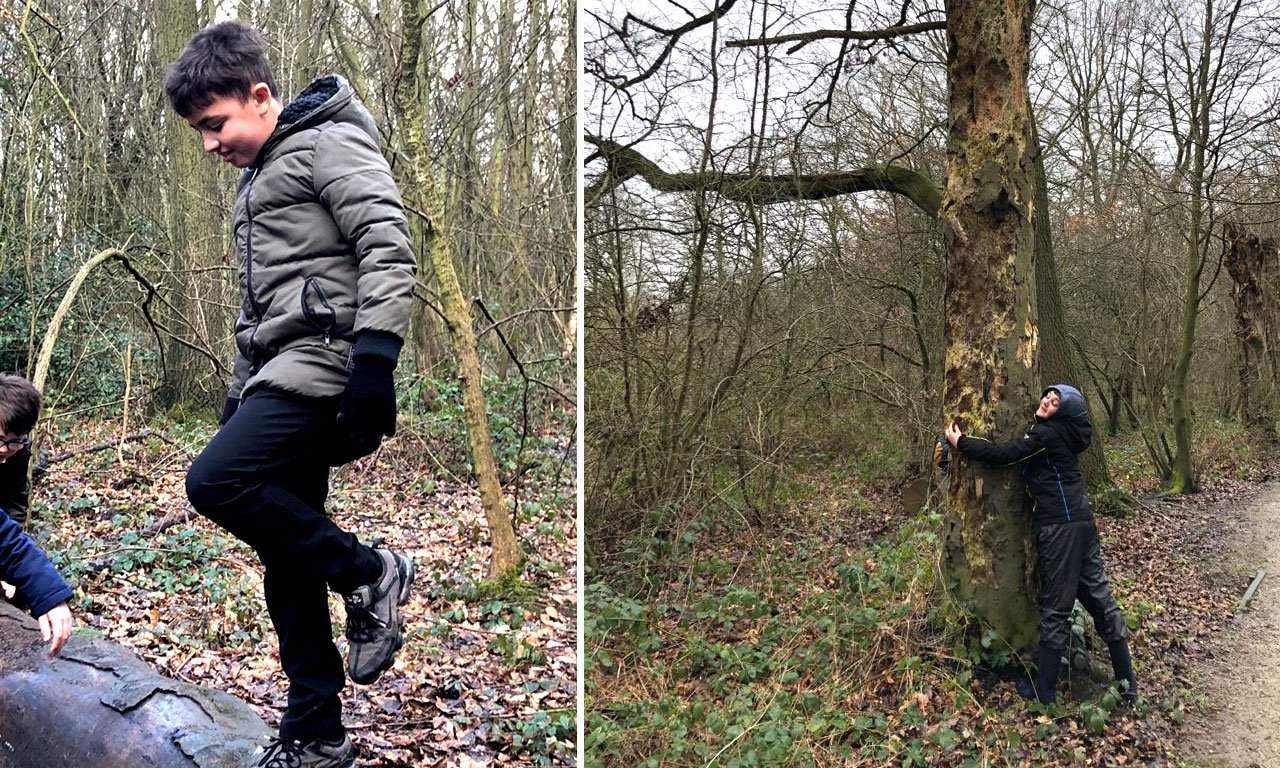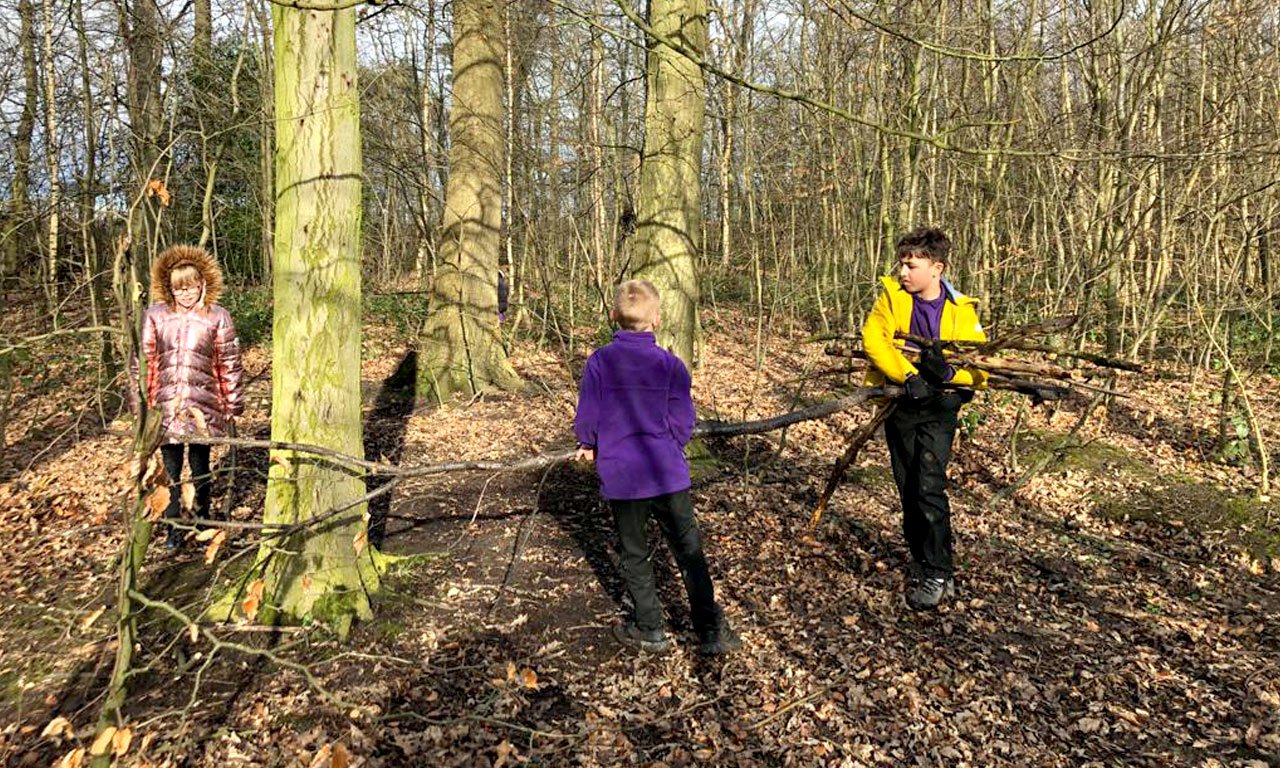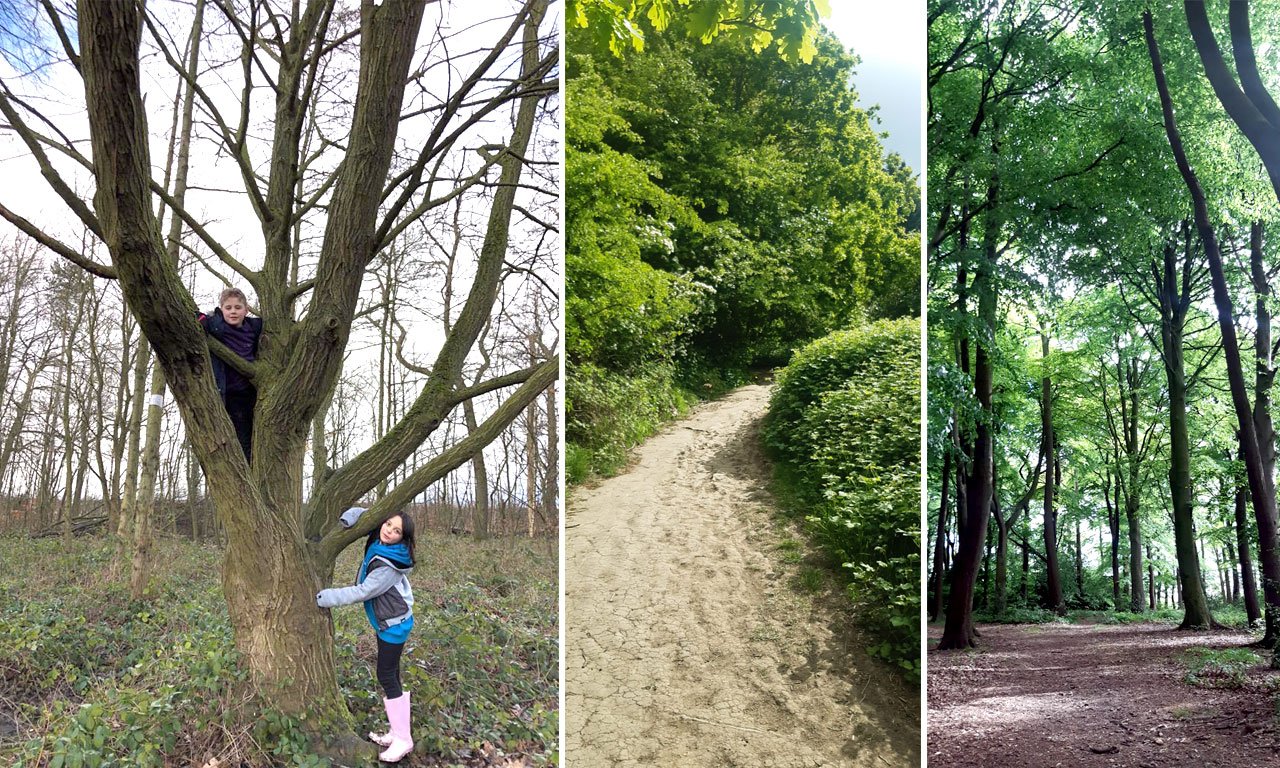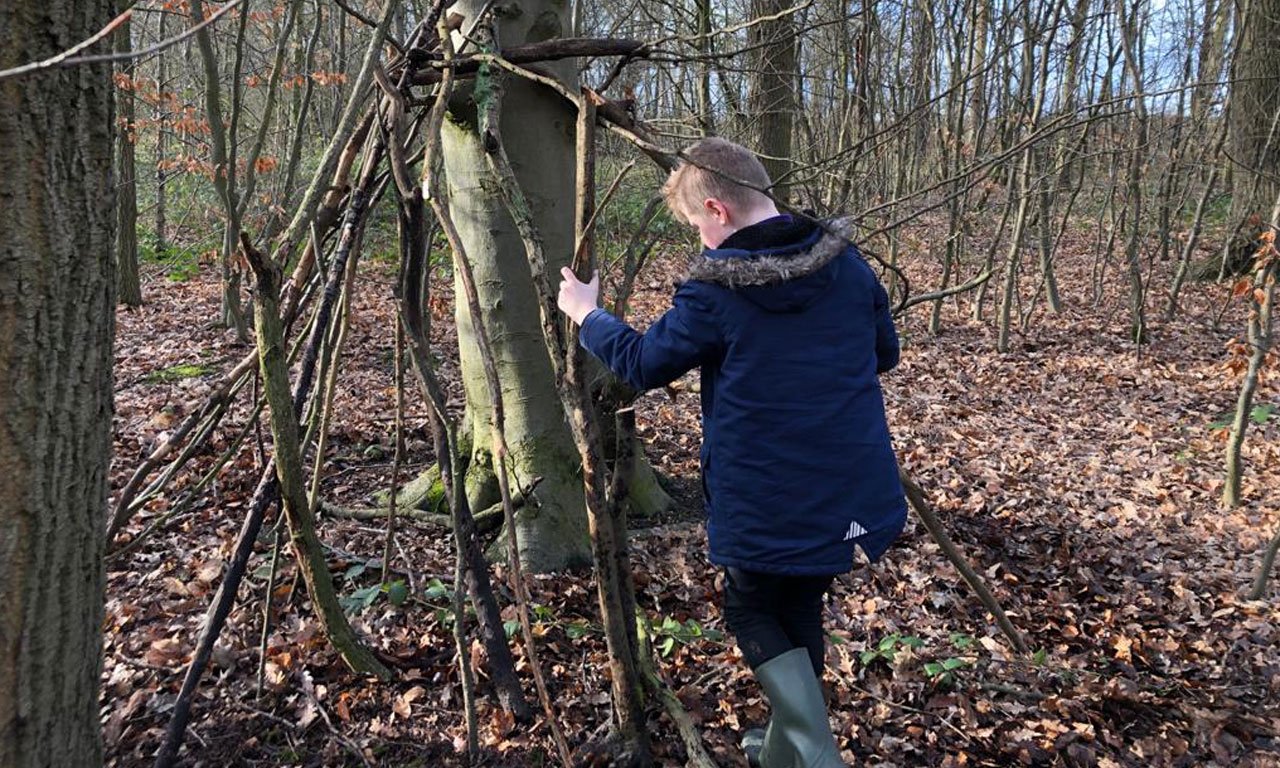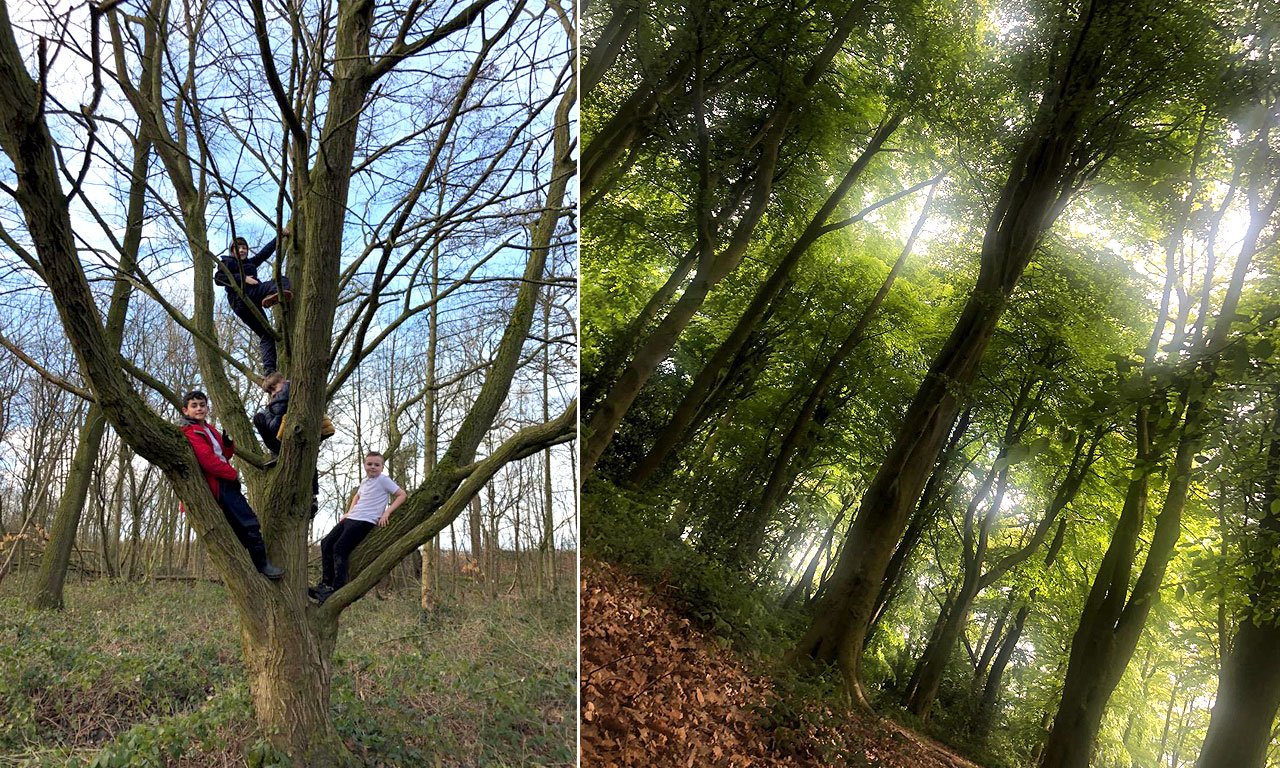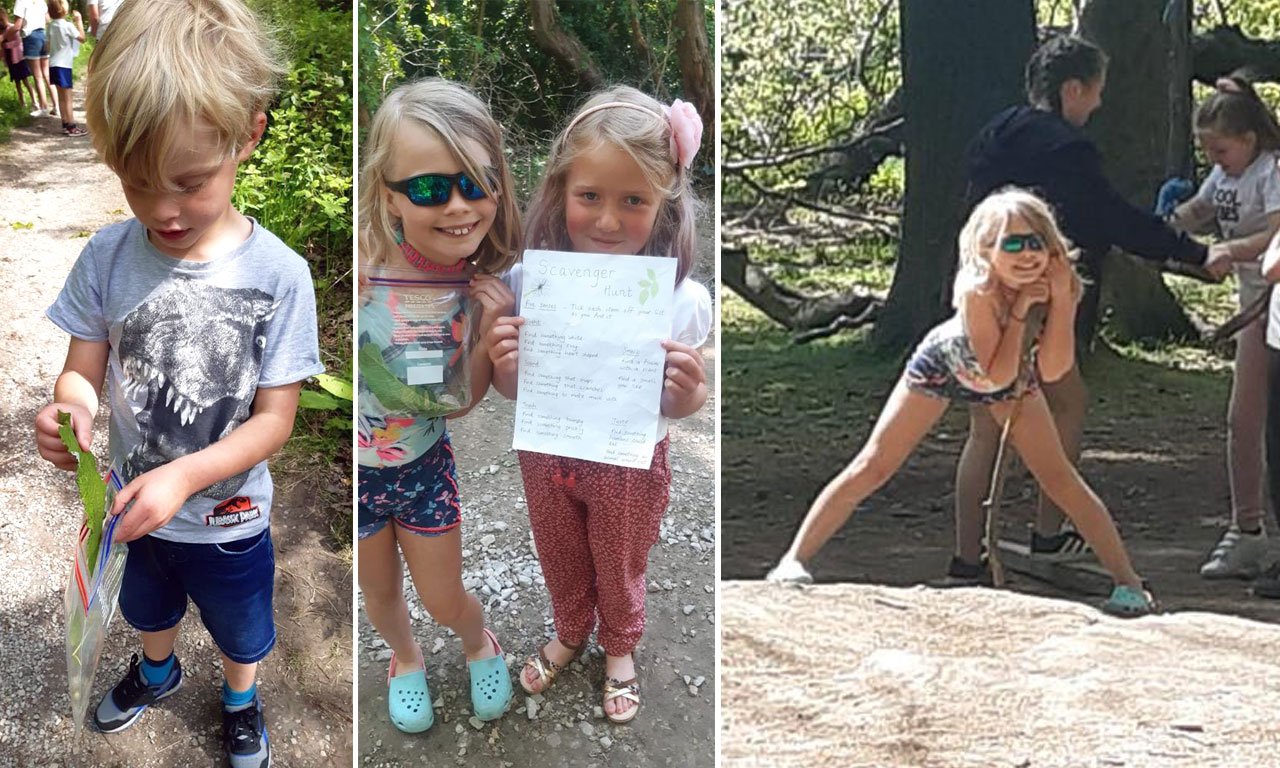Forest Schools
Why do we teach Forest Schools at FHC?
Forest Schools teaches children to understand the world around them. It teaches them to see risk and to make safe choices. Through teamwork and freedom to explore, it teaches them confidence and an understanding of boundaries.
Modern life give children little opportunity to develop these skills. To feel at home in nature and to enjoy the opportunities it provides that no classroom ever could.
We are so lucky to have the lovely Skelton Woods on our doorstep and these lessons help children to learn how to safely explore all it has to offer.
Sessions are led by GoWild Outdoors and supported by the class teams.
This is an exciting new addition to our curriculum- the children are loving it!
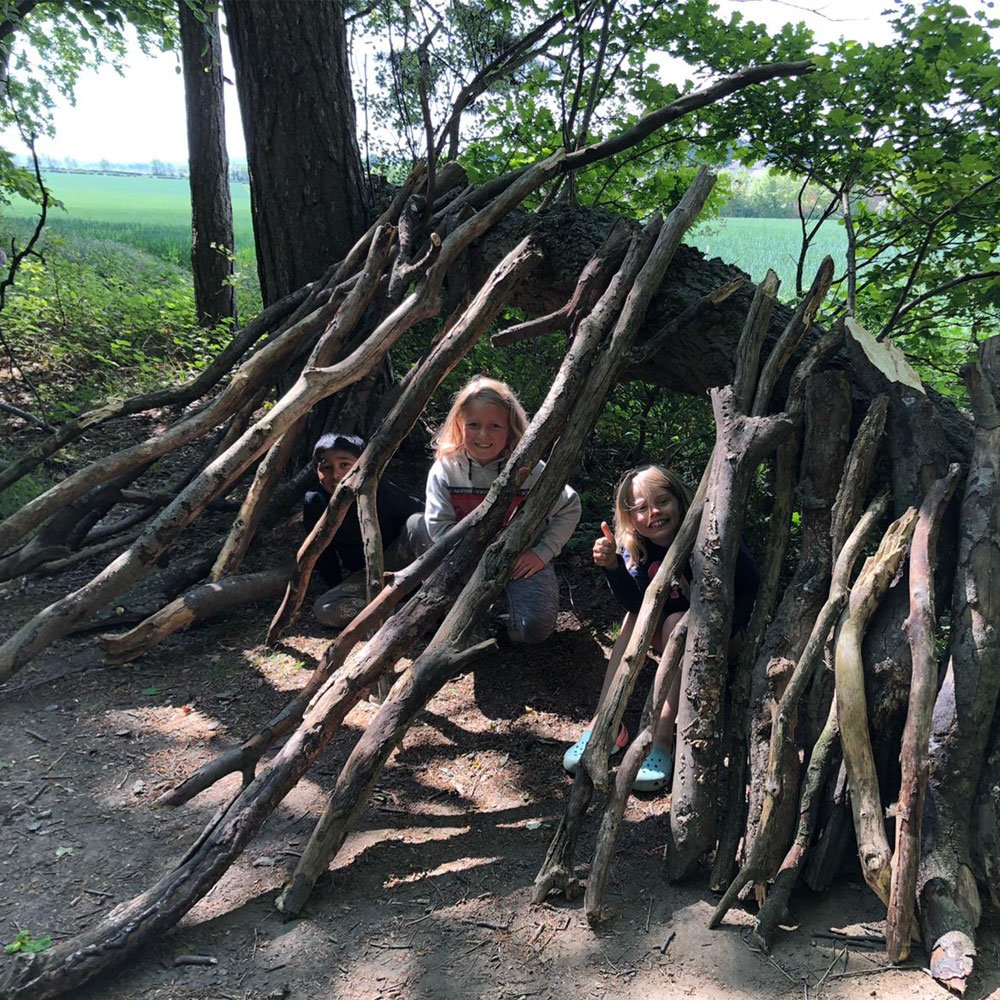
Click through pictures of our Forest School
What is Forest Schools?
Forest-Schools sits in a unique place within the school timetable. Being a child led, responsive programme, it does not follow a structured, progressive system in the same way that a traditional curriculum subject would. Indeed, it would be counterproductive to impose such a traditional structure on it; it is an experience more akin to a therapeutic intervention than a traditional subject. The progress of a session, or series of sessions, will depend on the moods and enthusiasms of the children involved, chance events and encounters during the session, and the maturity and age of the children. In addition, children should not be expected or forced to participate in a given activity, or given a level of expectation of what they will achieve.
In practical terms, this would mean that a child would not be told that they will be learning to climb trees, or told they have to climb to a given height. This imposes a definition of success, and subsequently the chance of failure. A child presented with the opportunity of tree climbing may choose to join in, or to pursue another interest. Anything they achieve will be their choice and their own achievement, and the more powerful and valuable experience for that.
That said, the types of experiences made available for the children, the broad expectations of how they may engage and behave on sessions and the amount of independence and responsibility given to the children by staff will alter and develop as they progress through the school; a year one pupil will experience Forest-Schools sessions in a different way to a year six pupil, albeit sharing a similar fundamental experience. This overview seeks to establish a broad framework for the delivery of Forest Schools, and ensure that the children gain full benefit from the sessions. The following is taken from the Forest-Schools Association website.
Forest School is an inspirational process that offers ALL learners regular opportunities to achieve and develop confidence and self-esteem through hands-on learning experiences in a woodland or natural environment with trees.
Forest School is a specialised learning approach that sits within and compliments the wider context of outdoor and woodland education.
The ethos is shared by thousands of trained practitioners across the UK and beyond. Its roots reach back to early years pioneers in outdoor learning and across the sea to Scandinavia.
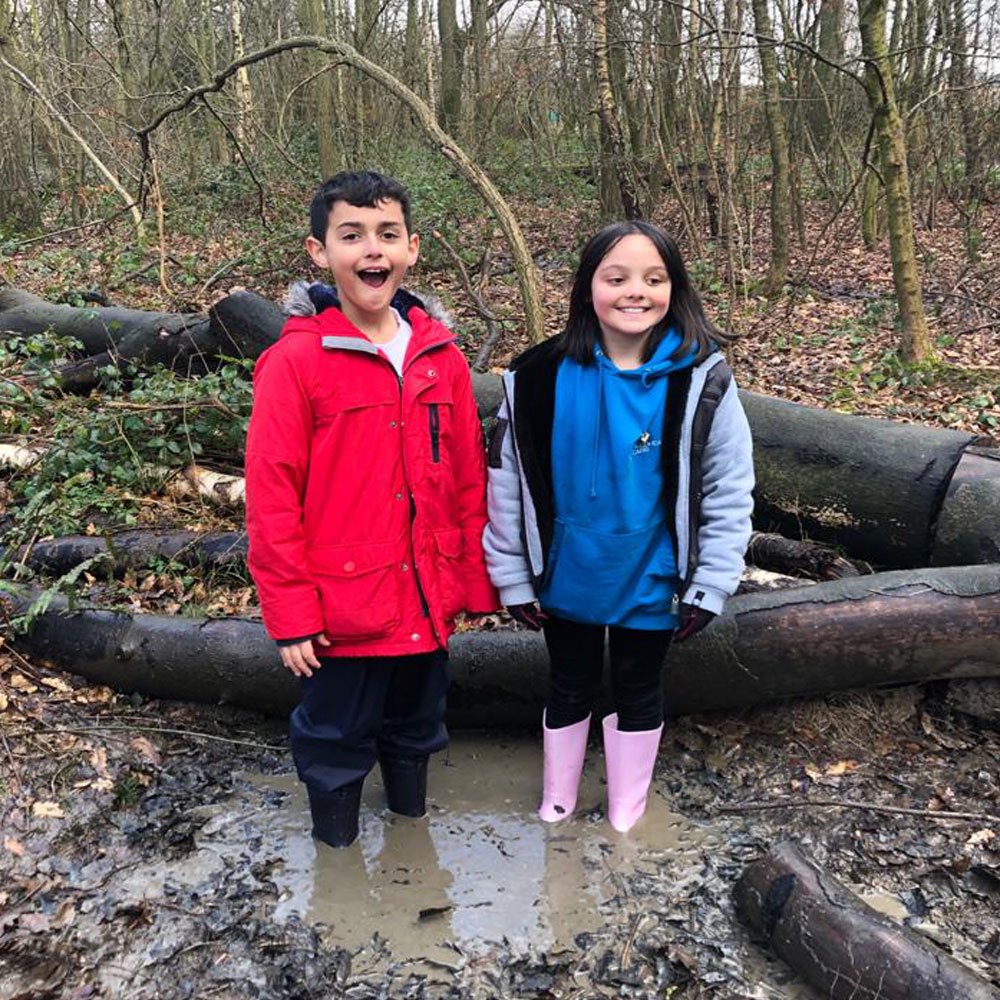
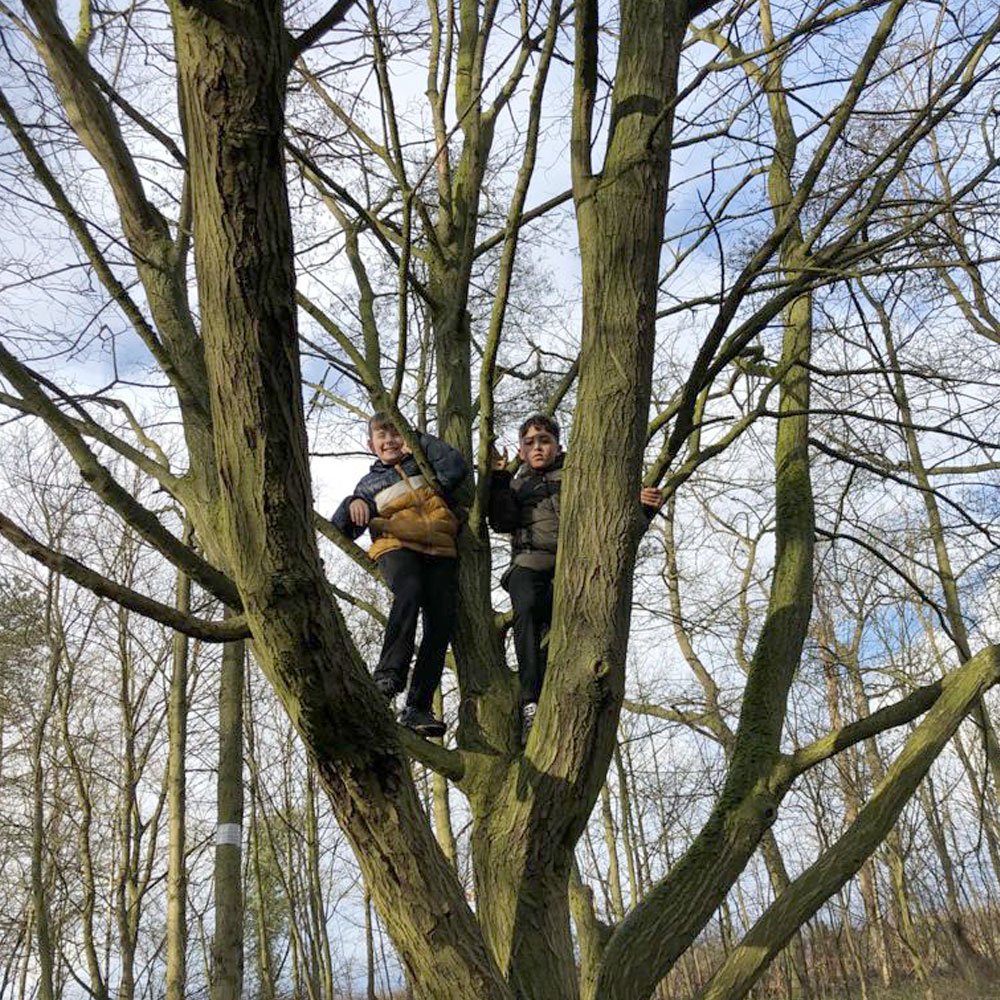
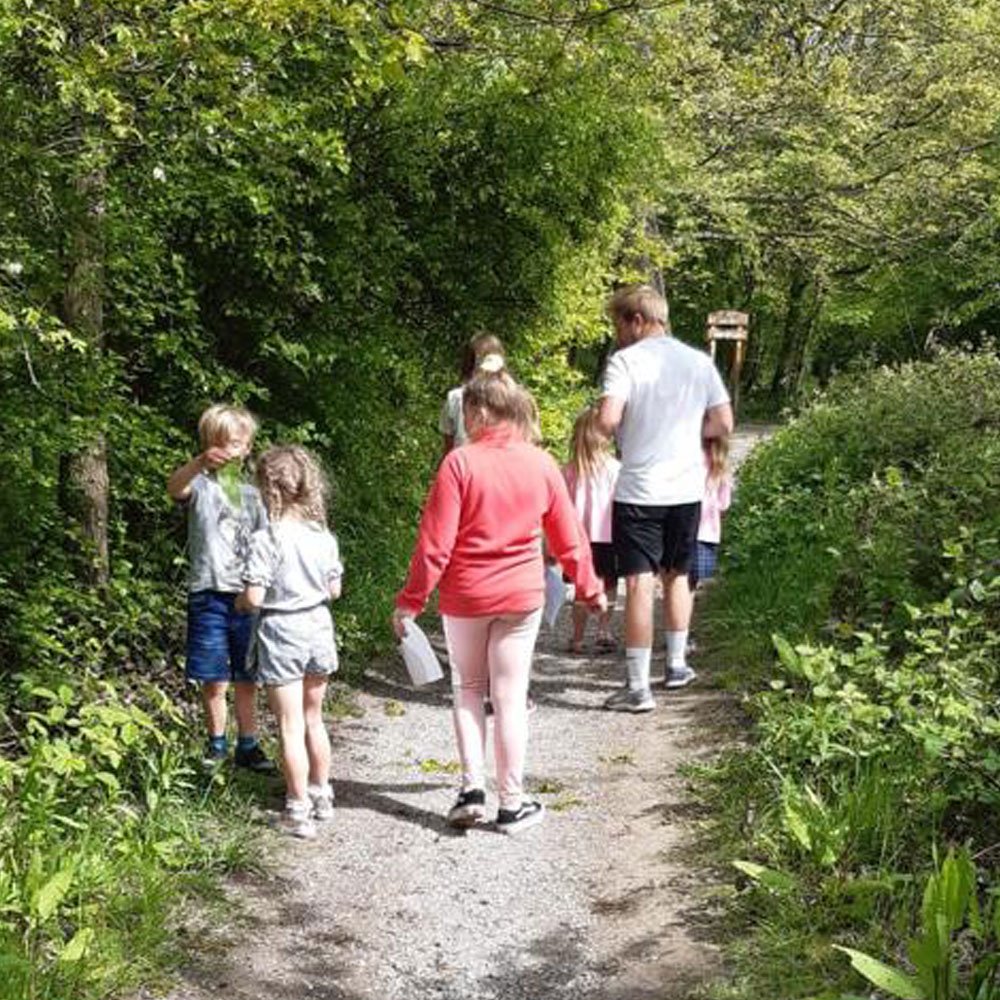
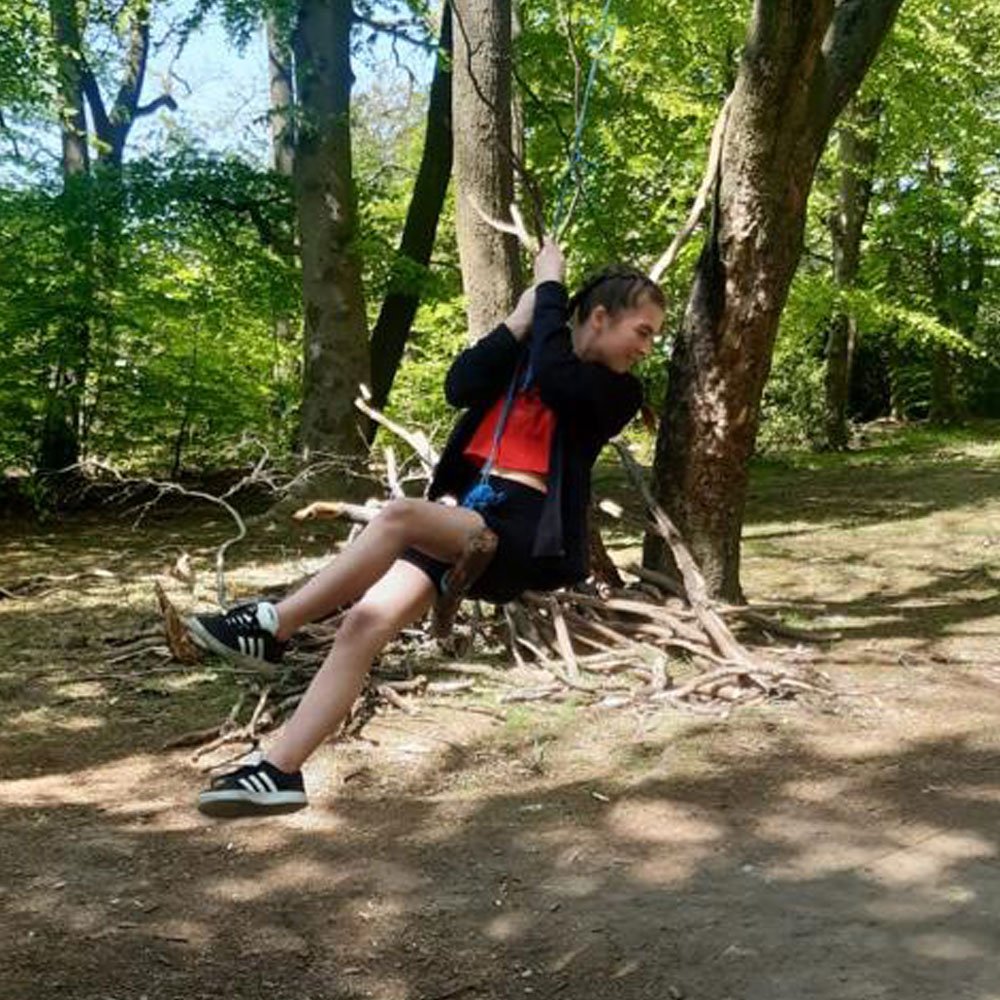
Principles of Forest School
These principles were first articulated by the Forest School Community in 2002. They were reviewed in 2011 and sent out for a 5-month consultation to Forest School networks and practitioners in all UK nations. They were published on the Institute for Outdoor Learning Forest School SIG page in Feb 2012, and in the minutes of the GB trainers’ network.
For a more detailed overview of the ethos and implementation of Forest-Schools, see the Forest-Schools Handbook.
- Forest Schools is a long-term process of regular sessions, rather than a one-off or infrequent visits; the cycle of planning, observation, adaptation and review links each session.
- Forest Schools takes place in a woodland or natural environment to support the development of a relationship between the learner and the natural world.
- Forest Schools uses a range of learner-centred processes to create a community for being, development and learning.
- Forest Schools aims to promote the holistic development of all those involved, fostering resilient, confident, independent and creative learners.
- Forest Schools offers learners the opportunity to take supported risks appropriate to the environment and to themselves.
- Forest Schools is run by qualified Forest School practitioners who continuously maintain and develop their professional practice.
Our FHC Forest Schools Curriculum
As a mixed age primary school, FHC has a number of challenges and considerations in delivering Forest Schools, especially when considering more inherently risky activities such as fire-lighting or the use of tools. Thus, sessions are split between the school site, Skelton Woods & Horse-Shoe Woods.
The school site is used predominantly for initial skills sessions for ‘woodcraft’ style activities, which can be more safely delivered in a more controlled environment as children master the skill. There may also be one off sessions at other sites, for example Squirrel Wood in Doncaster.
Each class will experience one Block of Forest-Schools sessions each year, with this taking place in a different season each time, which will have a natural impact on the type of experiences and activities they will experience, whilst also allowing them to experience the natural world in different seasons and weathers.
The following table and document (Forest Schools Skills Progression) lays out the progression in expectations for independence, tools and skills are cumulative; i.e. a child in year six would be fulfilling the expectations of all the younger year groups.
| Age Group | Independence and Boundaries | Interactions with Nature | Group work and interaction | Adult Support |
|---|---|---|---|---|
| Nursery & FS2 | Children in these groups would be expected to work with high levels of supervision in small groups | Children would be typically curious about the world around them, but require small group supervision | Children would be expected to work together with support to achieve their goal, with adult intervention to shape and direct learning and safety elements | Adult would be expected to lead and develop skills in the sessions and to intervene in learning to develop social cues and norms |
| Yr1&2 | Children in these year groups would be expected to work within shortened boundaries, typically staying within adult sight, or even closer, perhaps holding hands if less confident. | Children would typically be curious about the world around them, but require adult mediation to explore and understand, or adult questioning or planning to ensure they get the best outcomes | Children would be expected to work together, but groups may be smaller (pairs or threes) and often include adults, or very close adult support. | Adults would be expected to lead sessions (albeit responding to suggestions from the children) and provide very direct support and reassurance. |
| Yr3&4 | Children should be becoming more independent, choosing the appropriate distances to be from adults, although adults should still monitor and discuss to ensure boundaries are appropriate. | Children should be developing some knowledge of the animals and plants around them, identifying the more common ones by sight and making comments and predictions about where they may be and why. | Children should be able to work together and discuss and negotiate together to achieve tasks; they may be more independent in doing so, but require adult support and intervention to achieve positive outcomes. | Adult support should be more low key, with activities being more child led, and adults using questioning, or advice to support the children and guide their ideas |
| Yr5&6 | Children should be confident and able to make choices and plan activities for themselves – they should effectively choose their own boundaries, choosing the appropriate distances to be from the adults dependent on terrain and activities. Children would also be expected to have more control and choice over clothing – e.g. choosing trainers over wellies if wanting to climb* | Children should be confidently able to identify common woodland species and talk about the relationships between them and their habitats. | Children should be able to collaborate and work together, negotiating with each other and responding positively to others ideas. Groups should be more fluid and alter according to the activities undertaken. | Activities should, ideally, be entirely child led, with adults providing low key, minimal support as needed. Children should be confident in seeking advice and support when needed |
*Not at the expense of safety – e.g. no child would be allowed on a winter session without coats
What does the progression in learning look like in Forest schools?
Trust
At the heart of Forest Schools sessions is the development and maintenance of trust. It is down to the individual to leader to decide how they interpret and apply the above; all new series of sessions should begin with low risk, simple activities and build up to more risky or advanced sessions as the trust between the staff and children is established. This may mean that some groups will not experience the same activities as other groups of the same age, dependent on their maturity, engagement and interests, which is in line with the personalised nature of Forest-Schools.
Trust will be explicitly and regularly discussed with the children as part of all sessions.
What will my child need?
Please wait until your child’s class is designated a slot for Forest schools as the kit may vary.
In general:
Winter
- Waterproof coat and trousers
- Wellies
- Warm clothes to go under the waterproofs
- Water bottle
- Hat, scarf, gloves
Summer
- Sturdy shoes/boots so they can walk about and climb safely without worrying about twigs etc poking through soft shoes
- Hat and suncream
- Water bottle
- And as we live in UK- possible still waterproof coat, trousers and wellies
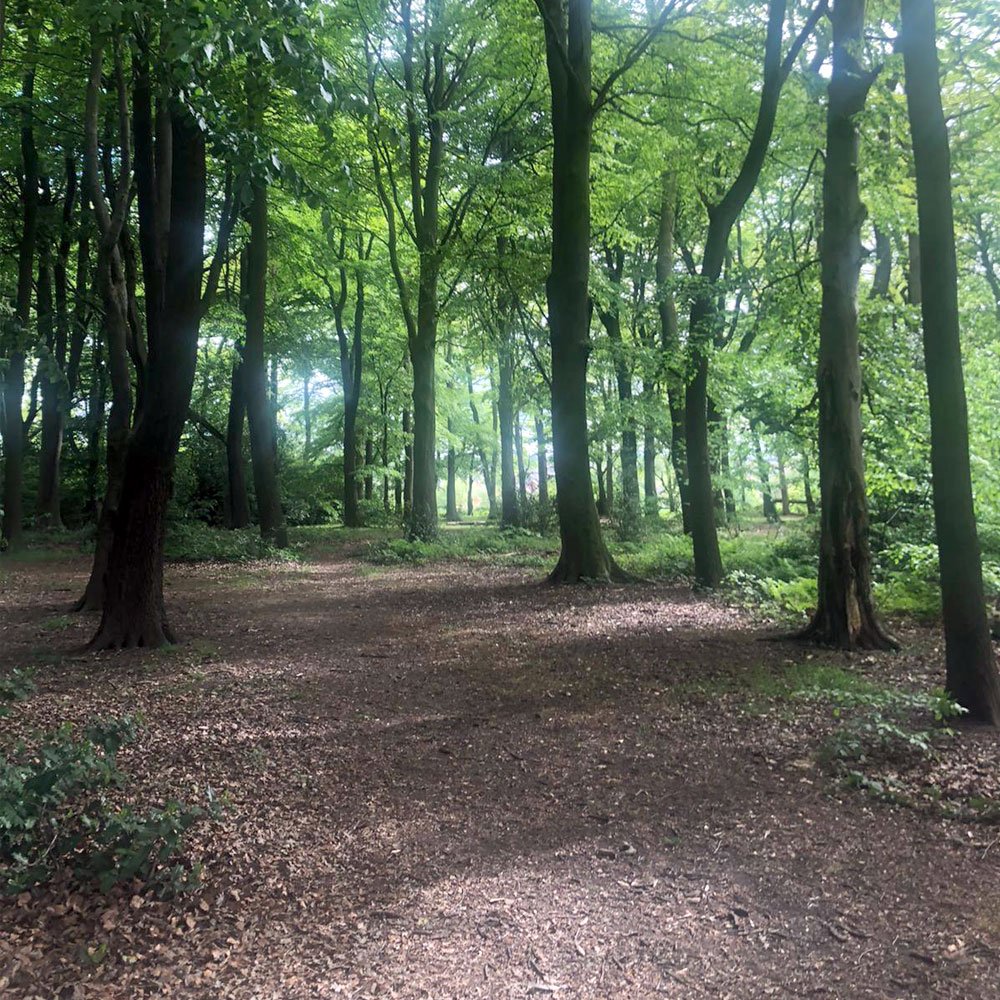
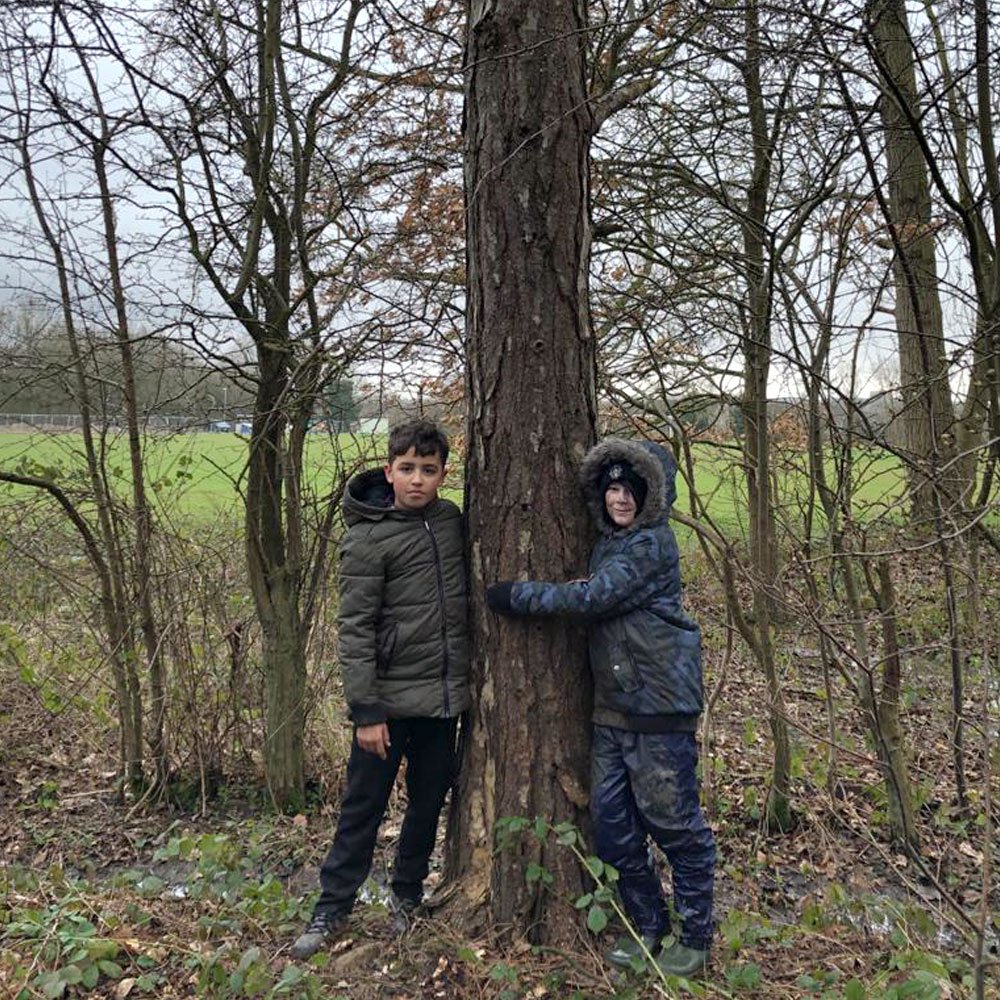
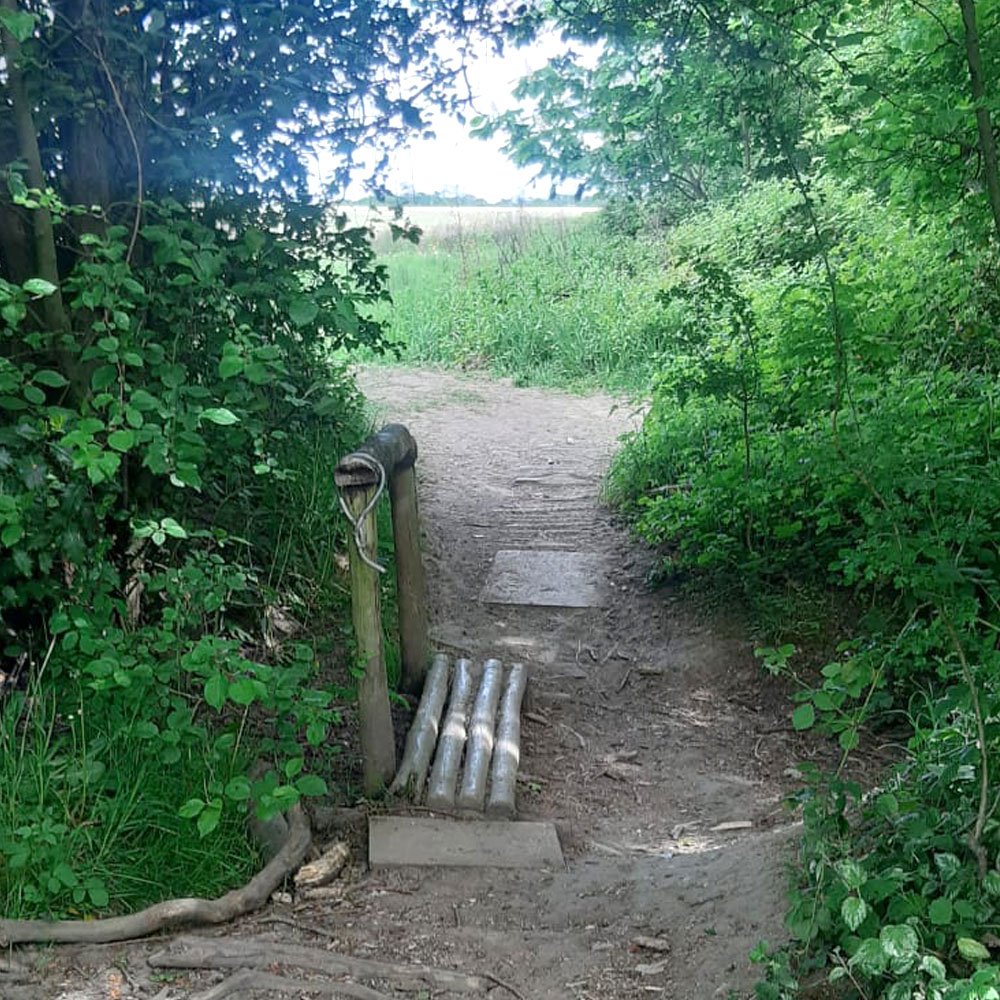
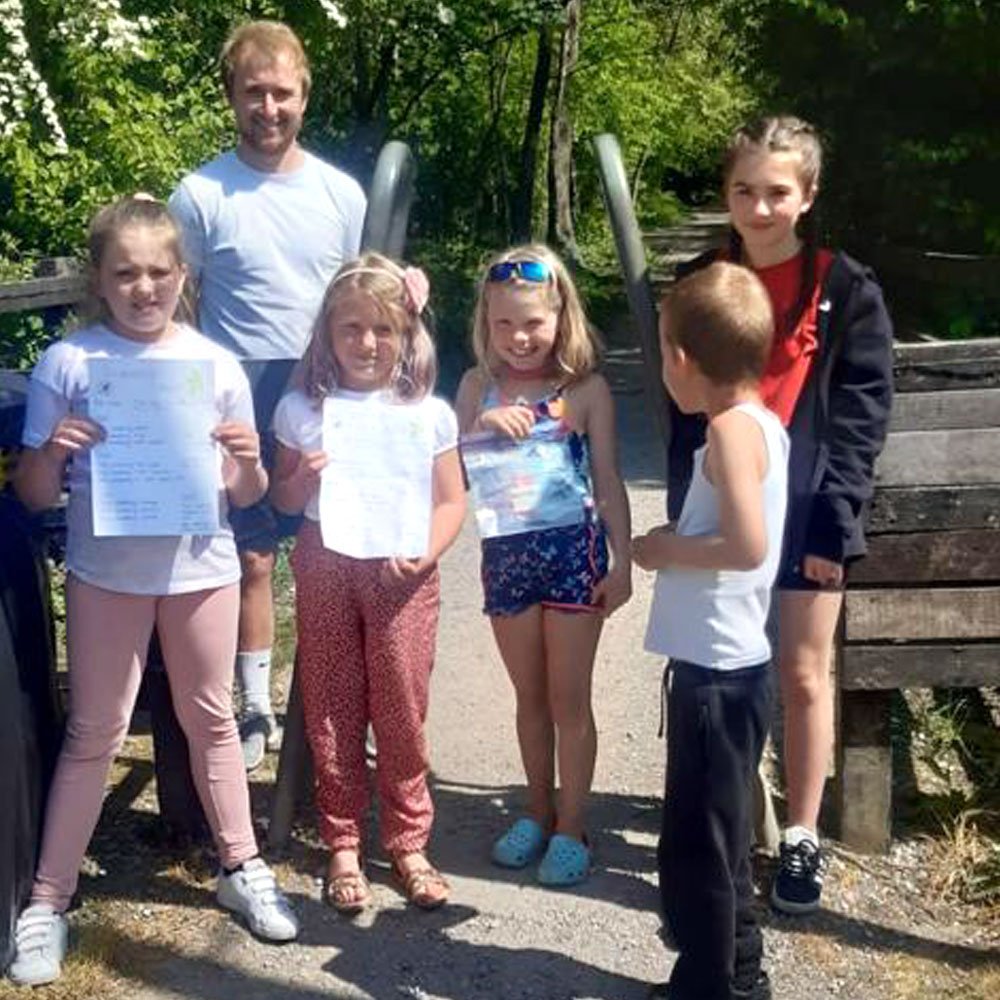
Trips & Experiences that will support the teaching of Forest Schools at FHC
- Half termly trip to Skelton Grange for named yeargroups to have emersion sessions
- Yr5 Fishing experience
- Yr2 Beachcraft trip
- FS2 Squirrel Wood Forest Schools Day
- Yr3 Brimham Rocks Den building & Bushcraft day
- Yr4 Orienteering day
- Classes will also regularly undertake the Swarcliffe health walk- to keep them in touch with the seasonal changes in their local environenment

